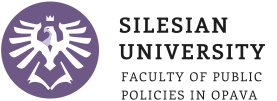Central European Papers 2015, 3(1):108-116 | DOI: 10.25142/cep.2015.007
The Idea of Central Europe and the Antall Government
- Hungarian historian and diplomat, former Foreign Minister of Hungary (1990-1994), former Hungary's Ambassador to the United States of America (1998-2002) and to the Kingdom of Norway and Republic of Iceland (2011-2014)
The anti-communist intellectuals of Hungary knew only too well how much the Soviet-imposed system was inferior to the Western "free world." Inspired by M. Kundera's famous essay on "The Tragedy of Central Europe," but also by 19th and 20th century Hungarian authors, they used the opportunity in 1989 to switch to a multi-party democracy following the West-European model. They expressed their dedication to Central European common interests and solidarity in the 1989 Christmas Manifesto of the Hungarian Democratic Forum, the party which, led by József Antall, won the free elections in Spring, 1990. The program presented to the Hungarian Parliament was an unambiguous endorsement of western values and a determination to work most closely with the rest of Central Europe, while also supporting the rights of the close to three million Hungarians who were transferred in the 1920 Peace Treaty to the countries neighbouring Hungary. The most meaningful realization of the Central European idea was the close political association of Poland, Czechoslovakia and Hungary created in February 1991 and named after its birthplace, Visegrád. The common themes of the larger Central European area were enunciated by Prime Minister Antall at the Hexagonale summit held in July 1991 in Dubrovnik.
Keywords: Central Europe, Hungary, Antall József, Hungarian Democratic Forum (MDF), national minorities, Visegrád Cooperation.
Published: March 1, 2015 Show citation
References
- ANTALL József: Modell és valóság. Vol. 2, Budapest 1994.
- ANTALL József: Selected Speeches and Interviews (1989-1993), Budapest 2008.
- ASH, Timothy Garton: Does Central Europe exist? in: The New York Review of Books, 33, 1986, 15, 45-52.
- BIBÓ, István: Válogatott tanulmányok. Vol. 2, Budapest 1986.
- Document of the Conference on the Human Dimension of the CSCE, Copenhagen, 29 June 1990 [online], available at: http://www.ena.lu/europe/organisation-security-cooperation-europe/conference-human-dimension-csce-copenhagen-1990.htm Hungarian Ministry of Foreign Affairs, Press Release 18/1990.
- JESZENSZKY, Géza: The Danger of National Conflicts in Post-Communist East-Central Europe, Intervention at the Aspen Conference, Prague, 29 August 1990.
- Kell-e nekünk Közép-Európa?, GYURGYÁK, János (ed.), Budapest 1989.
- KOPEČEK, Michal: Politics, Antipolitics, and Czechs in Central Europe: The Idea of "Visegrád Cooperation" and Its Reflection in Czech Politics in the 1990s, in: Questionable Returns, BOVE, Andrew (ed.), Vienna IWM, Junior Visiting Fellows Conferences, Vol. 12, 2002, online: http://www.iwm.at/wp-content/uploads/jc-12-01.pdf.
- SETON-WATSON, Hugh: The "Sick Heart" of Modern Europe, Seattle & London 1975.
This is an open access article distributed under the terms of the Creative Commons Attribution 4.0 International License (CC BY 4.0), which permits use, distribution, and reproduction in any medium, provided the original publication is properly cited. No use, distribution or reproduction is permitted which does not comply with these terms.



